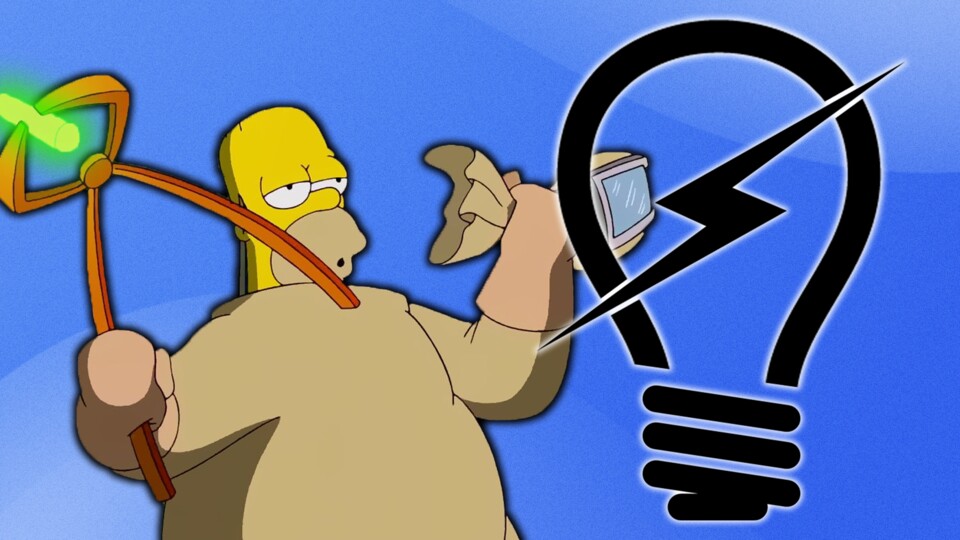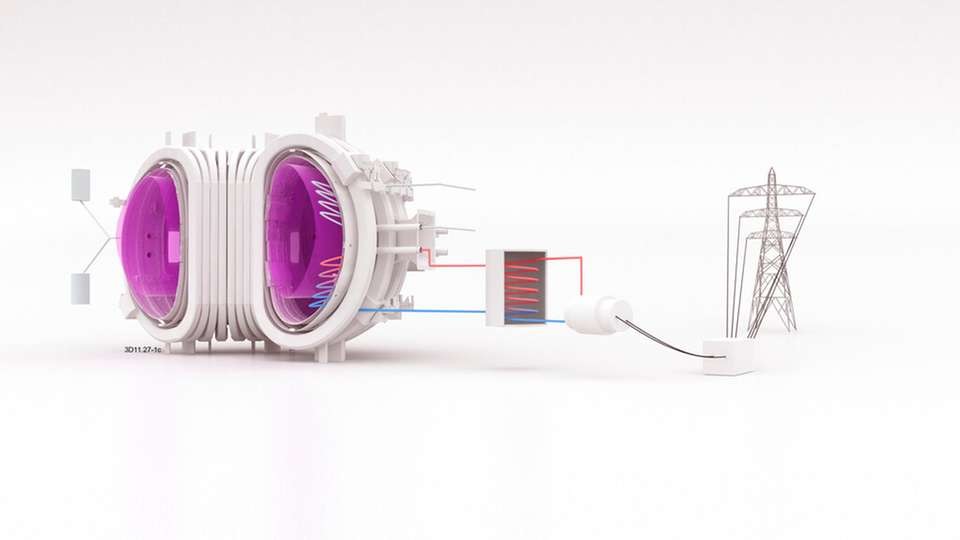We all know various elements like hydrogen, iron, helium and so on. But chances are you’ve rarely heard of tritium.
No wonder, because for many years other radioactive elements were like plutonium or uranium Evergreen in the media landscape. They’re burned into our brains, so to speak.
From the glowing green fuel rod from the Simpsons intro to the obligatory barrels with three-bladed impellers on a yellow background, which we’ve all seen leaking somewhere.
But the hydrogen isotope tritium may be with us in the distant future supply clean electricity. There is just one problem: only around 20 kilograms of tritium are produced every year. But what makes tritium so exciting for energy production in the first place?
Electricity with nuclear fusion instead of nuclear fission
The goal is simple. Generating clean electricity as efficiently as possible without having to accept extreme safety risks. Therefore, the usual way of generating energy in nuclear power plants should be overhauled: Splitting becomes fusion.
At least that is the plan of the international ITER project. The European Union, China, Russia, Japan, Korea and the USA joined forces a few years ago to work together on a nuclear fusion reactor.
Both by splitting and fusing certain elements, energy is generated that can be used to generate electricity.
Design of a fusion reactor. (Image: Ukaea)
So far, the world’s nuclear power plants work with nuclear fission. That means they split heavy atoms like uranium into lighter atoms like strontium, xenon and many more. So far, this has caused vast amounts of radioactive waste, and no one knows exactly what is going to happen to it.
Nuclear fusion, on the other hand, creates a heavy element by fusing two light elements. With the current state of the art, this can best be done with deuterium and tritium.
The advantage? Nuclear fusion is said to produce much less radioactive waste than the previous contrast. In addition, this process is considered to be much more secure because it can be terminated after a few seconds. With nuclear fission, this is not easily possible.
Where is the problem?
So far this all sounds very promising, but why haven’t there been a few fusion reactors around for a long time? There are two major problems with the technology:
1. Tritium is extremely rare
ITER estimates the annual amount of tritium at around 20 kilograms. This amount arises mainly as a waste product from the Canadian CANDU reactors, which are used worldwide. Each reactor should produce 100 grams per year.
Even smaller amounts are formed in the upper atmosphere. Cosmic rays interact with gas nuclei, creating this isotope of hydrogen. But even if our atmosphere is large, there is far from being enough to meet the global electricity requirements.
2. Efficiency is not yet involved
In order to supply as many people as possible on the planet with enough electricity, the power plants have to produce more energy than they consume – makes sense so far. Unfortunately, that’s not quite the case with fusion reactors, and research into them is expensive.
The first discharges of the “Tomahak” (fusion reactor) are currently planned for 2025. The fusion of deuterium and tritium should finally start by 2035. Whether and if so when such reactors will ever be able to take over a decisive part of our energy supply is still in the stars.
What do you think about nuclear fusion? Will it be the savior of energy production or a research project that costs billions and ultimately brings little? Would you at all be happy to see more reactors, even if they’re about nuclear fusion instead of fission and they’re supposed to be safer? Please let us know your opinions and views in the comments.



 What’s happening with AI? Researcher explains why you can look forward to more creative NPCs, competition for ChatGPT and hot dog tomatoes
What’s happening with AI? Researcher explains why you can look forward to more creative NPCs, competition for ChatGPT and hot dog tomatoes Cowboy launches new on-demand service: That’s what’s inside
Cowboy launches new on-demand service: That’s what’s inside The new 4K Fire TV stick is now brutally reduced and transforms your old television into a smart TV
The new 4K Fire TV stick is now brutally reduced and transforms your old television into a smart TV The best mouse I’ve ever had, convinces me for gaming, work and home office and is different than all its predecessors!
The best mouse I’ve ever had, convinces me for gaming, work and home office and is different than all its predecessors! The first smart glasses suitable for everyday use that you can buy
The first smart glasses suitable for everyday use that you can buy